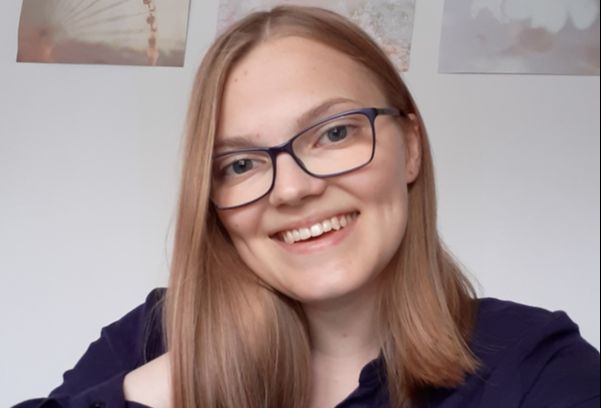Megan’s Story: Chronic Illness & Burnout
Megan is a freelance writer and content creator among other things. She runs a blog Megan Elizabeth Lifestyle where she chats about living with a chronic illness and the impact that has on physical and mental wellbeing. She also founded Hearth Content – a calm and conscious hub for creative business owners and freelancers who want to step away from the hustle lifestyle and redefine what it means to create their own brand. Something that I can’t support enough!
What’s your experience of burnout?
I first experienced burnout and more serious anxiety in my late teens. I was doing my A Levels aged 16/17, while also fully coming to terms with being diagnosed with hydrocephalus (excess fluid on the brain caused by enlarged ventricles) a few years prior and having to make these big life decisions about my future when I still didn’t really know what I wanted to do. At the time, it led to me missing several weeks of my final school year, severe panic attacks, and having to seek professional support. That experience really made me be more open with how I was feeling and look after myself better.
I realised that keeping my thoughts to myself was doing more harm than good. I was then diagnosed with Crohn’s Disease when I was 20 and experience chronic fatigue and flare ups. Burn out and having prolonged periods of exhaustion have become more common since then, and I have had to carve out more time in my life for rest and my wellbeing.
Were there any warning signs before you burned out?
During my first experience of burn out in my teens, I really struggled to go out the house because I was so anxious and didn’t have the energy to face anything. I would get stressed and irritated very easily. I became quite withdrawn and found it hard to focus on anything or get excited by anything. Nowadays, with my Crohn’s, I tend to just feel tired more, which is a sign that I have perhaps pushed myself a bit too much and not paced myself as much as I should have done. This is a sign that I need to take a step back and let my mind and body rest.
How did you recover?
I have been very lucky to have access to professional mental health support, both through the NHS and privately. This has included counselling, CBT, and talking therapy to work out the best strategies to help manage my health and anxieties to hopefully avoid any major burn out. The journey is a gradual one and you have ups and downs along the way, but in cases where my burnout and anxiety have been more serious, I have noticed a positive change after 3-6 months. I really do believe time has played a major part in my recovery from spells of burn out and anxiety attacks
Any tips to manage stress and overwhelm?
I am a big advocate of talking about how you feel. Whenever life is getting overwhelming, the best thing I find for me is to sit down with my family or friends, and get things off my chest. Talking about your mental health is not easy and can seem daunting if you are opening up for the first time, but once you start talking, it is easier to open up. Journaling also helps me. If you are not in a position to talk to someone, getting a pen and paper and writing everything out which is overwhelming you is another form of getting things out of your mind.
Why do you think that so many people burnout?
There is a lot of content online, unfortunately, a downside of social media, focused on the ‘hustle’ lifestyle, having massive to-do lists, and the idea that to be productive, you have to be on-the-go 24/7 and everything has to be done all at once. I feel like so much of the work culture these days is designed around being busy and meeting X, Y, and Z goals. There’s a lot of pressure out there, but the reality is that we all need to rest and slow down.
Do you think your experience is typical of the industry you were working in?
If you are self-employed, a big worry can be will I make enough money or get enough work this month. As a result, I think it is common to say ‘yes’ to any opportunity that comes your way without taking time to think ‘is this really right for me?’. I think this form of burnout is very common. From a chronic illness perspective, this is something that will affect fewer people, but the concept of pacing yourself and managing your energy levels is relevant to everyone.
Final words of wisdom…
I think it is really important to pace yourself and set boundaries, both in your work and personal life. Often we can take on too many things at once and say yes to everything, but through doing that, we are giving ourselves too much to do. Learning to say no and when to step back is really important. I also like to include daily self-care activities and have some ‘me’ time. This could be anything from yoga, meditation, journaling, going for a walk, curling up with a book, having a relaxing bubble bath, or a Netflix and chill session. Anything that brings you joy really and gives you the chance to switch off.
If you’re feeling the effects of stress and burnout and would like some support – whether that’s for you, your team or your business – drop me an email or book a free call, no strings attached.
I’d love to help you with tailormade 1:1 Anti Burnout Business Coaching or Mental Wellbeing Workshops or talks.

